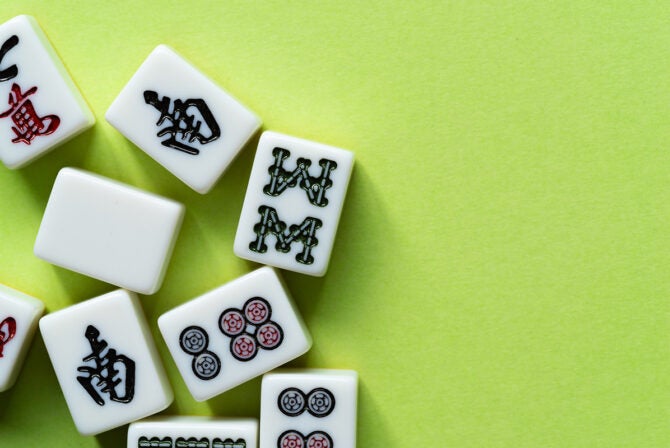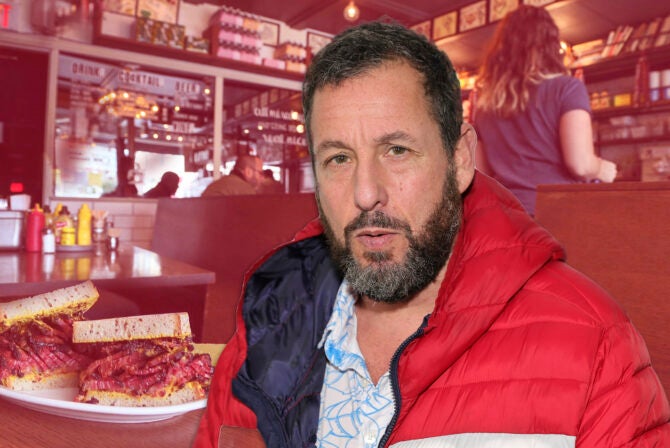If you haven’t seen the new season of “Black Mirror,” you should. At the very least, you should check out the episode “Arkangel” — because, as a parent, it might hit very close to home.
“Black Mirror” has been hailed as the new “Twilight Zone” — for good reason. It’s a British TV show that deals with the ramifications of technology, and the dark side to living in a more streamlined, easy to access world. For parents, especially, this show has the potential to raise your anxiety level. But it can also be compelling and engaging — and raise interesting questions about the “connected” world that we live in.
“Arkangel” — an episode directed by Jodie Foster and starring Rosemarie DeWitt — tackles these issues head-on. DeWitt plays a single mom who has a baby. We watch her daughter grow, until one day, as a toddler, she gets lost — and DeWitt frantically searches for her. After the child is found, she decides to allow an experimental tracking device to be implanted in her daughter’s brain — a procedure that cannot be undone — where she gets to experience everything her daughter sees and feels.
The episode explores the their relationship through the daughter’s adolescence, and we watch — first in dread, then in horror — as a mom shields her daughter from just about anything that could cause her fear.
You can probably see where this is going — and probably how having that kind of technology may not be such a great thing after awhile, long after your little bundle of joy is all grown up. Watching the episode myself, I can’t even begin to feel the dread turn to horror as I saw Sarah, the daughter, flail as she grows up and tries to figure out things she should have learned as a kid (like what blood looks like, because anything remotely uncomfortable is censored for her, literally). You know she’s going to make some bad choices — but also be robbed of choices she should be able to make and mess up. And it’s not going to be pretty. And for DeWitt’s characters, she suffers just as much as Sarah does.
Foster and DeWitt, who are both mothers, spoke to Vulture about why they made this episode, motherhood, and how raising kids in the age of technology can be absolutely terrifying. While Foster was given the script — she didn’t choose which episode of “Black Mirror” she’d direct — she opened up about how it couldn’t have been more perfect:
I kept saying to my friends, “I cannot believe they handed me this movie because it’s the perfect movie for me.” It really is. I came from a single-parent family, a single mom, and my relationship with my mom was very deep and significant. It really was such an enormously foundational thing for me. She worked with me in my career, so that’s even more interesting. And it’s the most beautiful relationship of my life — and the hardest. The one that required the most struggle and the most work as the years went on. So I had a lot to say about this.
Foster added how she’s felt overprotective of her kids, even when she knows she’s making the right choices for them:
I remember the time my son had to have his tonsils out and tubes put into his ears. And as he’s going down, the guy is putting the thing on his nose. He’s 4 years old… Then he looks at me, and suddenly he realizes that something’s happening to him, and he looks at me with this utter betrayal and terror. And I absolutely start sobbing and he goes under. He thought he was gonna die, and I can’t explain to you what a huge moment that was in my life. It was the hardest thing in the world… And then the child is looking at you, saying, “Are you killing me?” I can’t explain to him that it’s gonna be okay. Horrifying. Those moments.
But parenting through technology, Foster pointed out, isn’t always about the safety of a child, but living vicariously through children:
What’s interesting about technology, of course, is keeping the child safe, but the by-product is that you get into your child’s body and have the experience that they’re having when they’re not with you. For all intents and purposes, you are always inside the body of your child. I had a mom who lived through me in a lot of ways. It was a very complicated relationship. I was an actor, and I was doing all the things she could never do.

Foster went on to say how protecting our kids too much can have negative consequences, especially with girls:
It’s a lot of interesting questions about child-rearing, but also about being a woman and how we raise women, and what fears we bring based on our own lives. My child will never live what I had to live. I want her to not have to know that she’s continually sexualized, or that she’s lesser than, or that she’s not strong enough. I want her to not have those references, but there’s a price that she pays for not having those references. In some ways, she’s built the perfect monster, but then the monster is like, “Stop holding on to my leg or I’ll kick you in the face.”
Of course, parenting is full of nuance, and most choices are never easy to make — even allowing your 6-year-old to choose what socks to wear can become an order sometimes. nor should anyone be shamed for their choices. But it is important to think about the roles technology has in our lives, for kids and parents like, because it’s not going away anytime soon. In the meantime, of course, we can commiserate together.








